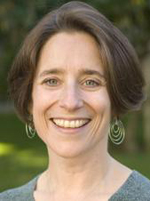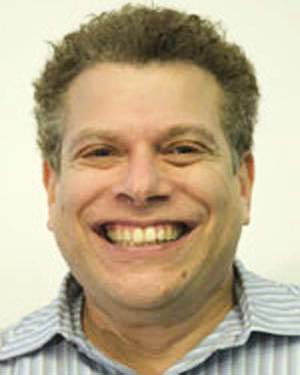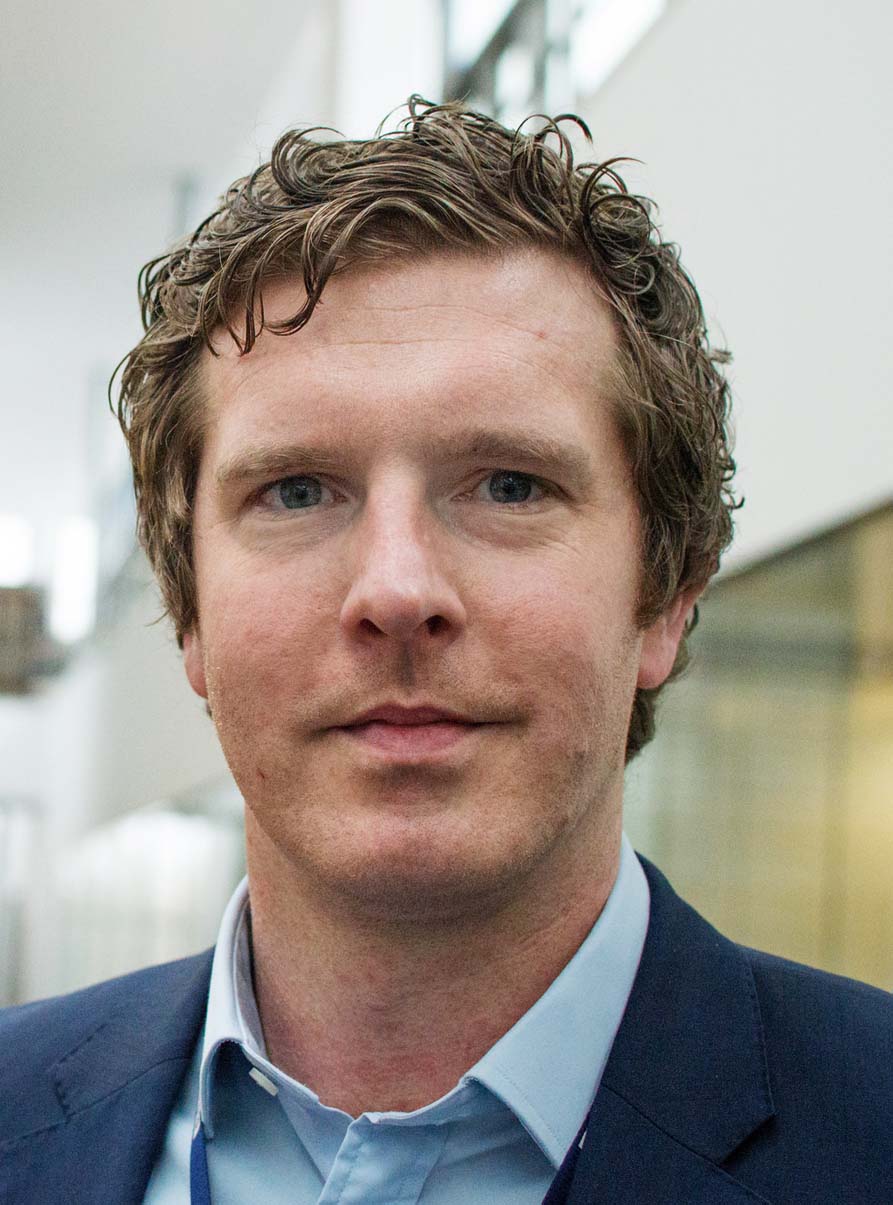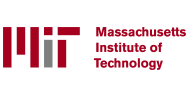Keynote Speakers
Speech Title
Computational Thinking, Computational Values, Computational Actions
 Prof. Hal ABELSON
Prof. Hal ABELSON
Professor
Department of Electrical Engineering and Computer Science
Massachusetts Institute of Technology, The United States
Speech Abstract
Educators are increasingly emphasizing the importance of computational thinking for young people. Computational thinking includes more than only skills and knowledge: Support for computational thinking also entails gaining respect for the computational values that can energize a digital world. And appreciation for computational values leads to possibilities for computational actions, whereby even young people can take advantage of computational thinking to make better lives for themselves, their families, and their communities. As educators, we have the responsibility to make our students aware of these possibilities, and we have the opportunity to help our students mature as empowered citizens in a world increasingly transformed by information technology.
Speaker Bio
Prof. Abelson is Class of 1922 Professor of Electrical Engineering and Computer Science at MIT and a Fellow of the IEEE. He holds an A.B. degree from Princeton University and a Ph.D. degree in mathematics from MIT. In 1992, he was designated as one of MIT's six inaugural MacVicar Faculty Fellows, in recognition of his significant and sustained contributions to teaching and undergraduate education. He won numerous education awards conferred by MIT, IEEE, ACM, etc. Also, he has played key roles in fostering MIT institutional educational technology initiatives including MIT Open CourseWare and DSpace, and has served as co-chair of the MIT Council on Educational Technology, which oversees MIT's strategic educational technology activities and investments. He is a leader in the worldwide movement towards openness and democratization of culture and intellectual resources. He is a founding director of Creative Commons, Public Knowledge, and the Free Software Foundation, and a former director of the Center for Democracy and Technology – organizations that are devoted to strengthening the global intellectual commons.
Powerpoint Presentation of Prof. Hal Abelson
Speech Title
Why is Computational Thinking Education Important as the Foundation for Innovation?
 Ms. Marjorie YANG
Ms. Marjorie YANG
Chairman
Esquel Group, Hong Kong
Speech Abstract
Everyone nowadays talks about Innovation and Creativity, which are regarded as essential attributes of any ideas and solutions to real-life/community problems, to spearhead a region’s drive to become a knowledge-based society.
The issue of how we nurture ones, our young generations in particular, to become more innovative and creative is of paramount importance. I will go over my own education experiences to explain how we can leverage on Computational Thinking Education to promote innovation and creativity.
From my perspectives, Computational Thinking is not merely a technical skill. Rather, it is a fundamental capability to decompose and synthesize different ideas and experiences, and then to formulate a solution that is authentic to oneself. With this ability to dissect problems and formulate solutions, more innovative and creative ideas can then be incubated and nurtured.
Speaker Bio
Ms. Marjorie Yang is Chairman of Esquel Group, a leading Hong Kong-based textile and apparel manufacturer with operations throughout the world. She obtained a Bachelor of Science degree from Massachusetts Institute of Technology (MIT) and a Master of Business Administration degree from Harvard Business School. With a vision to develop stronger computational thinking abilities of the general public, she has been largely engaging in various positions and organizations voluntarily to promote the use of App Inventor in China and Hong Kong, and innovative technologies in education, to new but a few, she is a Co-chairman of the Advisory Board of Computer Science and Artificial Intelligence Lab (CSAIL) at MIT, and the Chairperson of the Steering Committee of the Computational Thinking and Coding Education Programme funded by The Hong Kong Jockey Club Charities Trust. In the field of education, she had been the Chairman of the Council of Hong Kong Polytechnic University for six years till year 2015 and is a member of various academic advisory boards, including Harvard University, Harvard Business School, MIT Sloan, and School of Economics and Management of Tsinghua University. Also, she has been a member of the National Committee of the Chinese People’s Political Consultative Conference since 2003. She serves as Deputy Chairman of the Seoul International Business Advisory Council (SIBAC) for providing consultancy service to the Mayor of Seoul and an Independent Non-executive Director for both The Hongkong and Shanghai Banking Corporation Limited, and Swire Pacific Limited.
Powerpoint Presentation of Ms. Marjorie Yang
Speech Title
Principled Assessment of Computational Thinking: Measuring CT Concepts, Practices and Perspectives Using Evidence-Centered Assessment
 Ms. Linda SHEAR
Ms. Linda SHEAR
Deputy Director, Center for Technology in Learning
SRI International, The United States
Speech Abstract
Computational thinking (CT) education is increasingly recognized around the world as a critical enabler in preparing students for their futures in a digital society. A large number of European nations, for example, have introduced coding and computational thinking programs as part of compulsory education, seeking to build skills such as problem solving and logical thinking in addition to specifically digital competencies. In the United States, the CS For All initiative and the new K-12 CS Framework are aimed at supporting states as they move to build more robust pathways for pursuing CS in primary and secondary schools. As CT programs proliferate they will need to be able to produce evidence that they are having positive impacts on CT learning outcomes, and, in order to produce this evidence, programs will need assessments that support valid inferences about what students are learning. Evidence-Centered Design (ECD) is a framework for designing and developing assessments. ECD is especially helpful when the knowledge and skills to be measured involve complex, multistep performances, such as those required in computational thinking. Ms. Shear will describe current conceptions of CT and what we know about the impacts of CT curricula in K-12. She will introduce the fundamentals of ECD and share examples of how SRI has leveraged ECD to inform the development of assessments of CT learning outcomes for students in K-12.
Speaker Bio
Linda Shear is the Director of International Studies and Deputy Director at SRI International's Center for Technology and Learning, and co-leads evaluation research for CoolThink@JC. She has directed numerous studies of educational technology evaluation and school/system reform, both in the U.S. and internationally, and has supported foundations and nonprofits in strategic planning and theory of change development. She directed research and professional development for ITL Research, a multinational research collaboration to investigate and promote innovative teaching and learning, and has brought related professional development programs to countries around the world. She is currently leading a large-scale study of the adoption of 1:1 technology in over 100 of the most economically challenged schools and communities in the United States. Linda was an undergraduate at Princeton University and did her graduate training in Education at the University of California, Berkeley.
Powerpoint Presentation of Ms. Linda Shear
Speech Title
Transforming Knowledge and Learning through Agent-Based Modeling
 Prof. Uri WILENSKY
Prof. Uri WILENSKY
Professor
Northwestern University, The United States
Speech Abstract
Agent-based Modeling (ABM) is a methodology that enables modelers to capture the behavior of systems in ways that connect micro- and macro-levels. They represent the micro-level as computational agents with characteristic behaviors. Then, as the agents execute their behaviors and interact with one another, macro-patterns emerge. Thus, ABMs enable a natural and accessible representation of "emergent phenomena," which are notoriously difficult to comprehend. With ABMs, we can model a wide variety of phenomena, such as the formation of galaxies from the interactions of stars, the emergence of traffic jams from the behaviors of drivers, the appearance of economic patterns from the behavior of buyers and sellers, the unfolding of urban development, and the spreading of diseases from individual contacts on a network. In fact, many core phenomena and principles across the sciences can be understood in terms of emergence in this way. In this talk, I will discuss the design of the NetLogo ABM environment and describe strategies we have been using to integrate ABM into learning, across a wide range of ages and school subjects.
Speaker Bio
Uri Wilensky is a Professor of Learning Sciences, Computer Science and Complex Systems at Northwestern University. He is the founder and director of the Center for Connected Learning and Computer-Based Modeling and co-founder of the Northwestern Institute on Complex Systems (NICO). Much of his work has focused on the design of computer-based modeling and simulation languages, including networked collaborative simulations for both science research and math/science education. He is the author of the widely-used NetLogo agent-based modeling environment, the HubNet participatory simulation system, the NetLogo models library (which includes more than 300 agent-based simulations across a range of content domains), and numerous STEM curricula. He has an abiding interest in the changing content of knowledge in the context of ubiquitous computation, and its implications for making sense of complexity. He has published more than 200 scientific papers. He is the recipient of the National Science Foundation Career Award and the 2016 ISDDE prize for excellence in design.
Speech Title
"It's not the Coding Curriculum": Embedding Computational Thinking into England's New Computing Curriculum
 Prof. Tom CRICK
Prof. Tom CRICK
Professor
Cardiff Metropolitan University, The United Kingdom
Speech Abstract
In September 2014, we saw the introduction of a new computing curriculum that has schoolchildren in England from the age of five learning how to apply the fundamental principles and concepts of computer science, including abstraction, logic, algorithms and data representation. Alongside supporting responsible, competent, confident and creative users of technology -- who are able to evaluate and apply these technologies analytically to solve real-world problems -- they are developing the ability to analyse problems in computational terms, and have repeated practical experience of writing programs in order to solve such problems.
Reflecting on the third year of this new curriculum in England, which in its official documentation declares that “a high-quality computing education equips pupils to use computational thinking and creativity to understand and change the world”, we present its successes, as well as articulating its future challenges: building and scaling a strong computing teacher community across the country, developing and sharing effective pedagogies for teaching computational thinking and other key topics in computing, as well as communicating “it’s not just about programming”.
Speaker Bio
Tom Crick is Professor of Computer Science & Public Policy at Cardiff Metropolitan University, UK. His interests sit at the research/public policy interface, identifying data-driven and computationally-intensive problems across a range of domains, as well as computational thinking, digital skills and computer science education more broadly. He is the Nesta Data Science Fellow, 2014 Fellow of the Software Sustainability Institute, HEA National Teaching Fellow and previously a Science Media Fellow with the BBC.
He is Chair in Wales of Computing At School (CAS), the grassroots organisation that has initiated and supported substantial curriculum reform across the UK. In 2013, he chaired the Welsh Government's review of the ICT curriculum, leading to substantial reform of computer science education in the new National Curriculum. He has recently chaired the development of a new Digital Competence Framework for all schools in Wales, embedding computational thinking skills and data literacy across the entire curriculum. He is currently an expert adviser to the Welsh Government on digital skills, having previously a member of the UK Digital Skills Taskforce, and is a member of the UK Forum for Computing Education (led by the Royal Academy of Engineering). You can find him on Twitter @ProfTomCrick or via his blog: http://proftomcrick.com





